A superteam in the National Basketball Association (NBA) is a team that is viewed as significantly more talented than the rest of the teams in the league. There is no official distinction, but it is generally viewed as a team that has at least 3 Hall of Fame, All-Star, and/or All-NBA caliber players that join forces to pursue an NBA championship.[1]
Notable Superteams
1968–1973: Los Angeles Lakers
The earliest example of a superteam without it naturally being developed is when superstar Wilt Chamberlain joined fellow superstar players Jerry West and Elgin Baylor, on the Los Angeles Lakers in the 1968 offseason. This trio reached the NBA Finals on two separate occasions, both times losing in a game seven to the Boston Celtics in 1969, and the New York Knicks in 1970. The Lakers would win the championship in 1972 while recording what was at the time the best regular season record ever at 69–13, but Baylor retired early in the season due to injuries. Nevertheless, Baylor earned a championship ring for his services to the team. Meanwhile, the Lakers reacquired Gail Goodrich from the Phoenix Suns in 1970, who went on to become a four-time All-Star while with the Lakers himself.[2][3][4] Wilt Chamberlain later retired in 1973, ending what can be considered the first superteam in NBA history; West later retired himself in 1974, while Goodrich ended up leaving the Lakers again (this time in free agency) in 1976.
1979–1989: Los Angeles Lakers
The Lakers would once again create a new superteam of their own by the end of the 1970's. The makings of it first began when the Lakers traded with the Milwaukee Bucks in 1975, back when Gail Goodrich was still with the Lakers, after multiple negative remarks relating to the city of Milwaukee happened during the 1974–75 season. Then, in 1977, the Lakers acquired former Golden State Warriors All-Star and champion Jamaal Wilkes in free agency after the Warriors declined to match the Lakers' offer for him. However, it wasn't until 1979 where the superteam rub first began for the Lakers when they were not only purchased by Jerry Buss from owner Jack Kent Cooke, but also drafted Earvin "Magic" Johnson with the #1 pick they acquired via trade with the New Orleans Jazz before the 1979 NBA draft began and then acquired former ABA MVP and All-Star Spencer Haywood from the recently rebranded Utah Jazz in exchange for Adrian Dantley. Despite needing to replace coach Jack McKinney with Paul Westhead only 13 games into the 1979–80 season, the Lakers saw immediate success that season by not only creating a basketball phenomenon for the 1980's decade called the Showtime Lakers, but also by winning the 1980 NBA Finals over the Philadelphia 76ers, with rookie Magic Johnson winning Finals MVP honors that year. The 1979–80 Lakers season became the focal point for the first season of HBO's "Winning Time: The Rise of the Lakers Dynasty".
After that season, Haywood was kicked off the team for cocaine problems, Johnson had injury problems in his left knee, and the Lakers were knocked out of the first round the following season to the eventual Western Conference champion Houston Rockets. However, the Lakers bounced back by not only firing coach Paul Westhead and replacing him with former Lakers player Pat Riley as head coach for the rest of the 1980's, but also by acquiring former All-Star and MVP Bob McAdoo from the New Jersey Nets on a Christmas Eve trade in 1981. This led to the Lakers getting their second NBA Finals championship in 1982 during the Showtime era, as well as later acquiring star forward James Worthy as the #1 pick in the 1982 NBA draft thanks to a previous trade with the Cleveland Cavaliers under Ted Stepien's ownership. With Worthy on their roster, the Lakers managed to make it at least to the NBA Finals in every season (later winning another NBA Finals championship in 1985) before losing the Western Conference Finals to the Houston Rockets in 1986 after both Jamaal Wilkes and Bob McAdoo left the Lakers in 1985. However, due to consistently good roster building despite the departures of Wilkes and McAdoo, the Lakers still managed to return to the NBA Finals in their next three seasons, winning it all again in 1987 and 1988 to cement their status as the best NBA team of the 1980's, before their superteam era of sorts ended with the announcement of Kareem Abdul-Jabbar's retirement in 1989 after losing the 1989 NBA Finals to the "Bad Boys" era Detroit Pistons. Their Showtime era would try to continue onward in the early 1990's without Kareem, including an NBA Finals appearance in 1991 under new head coach Mike Dunleavy Sr., but they could never recapture the magic of the 1980's while using their own key players, especially after Magic Johnson retired from the sport during the 1991 preseason by force after he tested positive for HIV. The last key piece of the Showtime Lakers era, James Worthy, ultimately retired in 1994 while Magic Johnson briefly tried his hand as a head coach for the Lakers, though Johnson ultimately retired for good as a Lakers player in 1996 following a brief unretirement.
1980–1993: Boston Celtics
Like the Lakers before them, the Celtics began making their steps to create their own superteam by the 1980's, although the starting point for their team was met with some controversy at first. After the 1978 NBA draft (which was when Boston originally drafted forward Larry Bird), new Celtics team owner John Y. Brown Jr. made a trade with new Buffalo Braves turned San Diego Clippers owner Irv Levin without longtime Celtics associate (and at the time, general manager) Red Auerbach's permission that led to the Celtics acquiring All-Star point guard "Tiny" Nate Archibald alongside Billy Knight and Marvin Barnes in exchange for Freeman Williams and initial keys for improvement in Kevin Kunnert and Kermit Washington. On February 12, 1979, the Celtics made another trade under Brown's name without Red Auerbach's approval that led to them trading for then-New York Knicks player Bob McAdoo in exchange for three 1979 first round draft picks. By the end of the 1978–79 season, Auerbach threatened to leave the Celtics for the New York Knicks before John Y. Brown Jr. gave his shares of the Celtics to Harry T. Mangurian Jr. and the Celtics had only 6 players from their previous season playing for them after longtime team captain John Havlicek retired for good. Despite the inner turmoil and conflicts at the time, the Celtics would bolster themselves through the following season with Bill Fitch coaching the team, Larry Bird finally playing in the NBA, and "Pistol" Pete Maravich playing part of his final season with the Celtics, which gave them immediate improvements entering the following season from 29–53 to 61–21 and a division championship in 1980.
Despite the improvements at hand, however, the Celtics did not officially become a superteam until the 1980 NBA draft began. When that year's draft began, the Celtics traded what was their #1 pick and their #13 pick (which were both acquired after trading Bob McAdoo to the Detroit Pistons for M.L. Carr in 1979) to the Golden State Warriors to acquire center Robert Parish and the #3 pick of the draft, which became power forward Kevin McHale. Both of these players ultimately became key pieces for what some pundits and analysts consider to be one of the best frontcourts in NBA history. With their new core coming together at the right time, they managed to improve upon their previous season by winning the 1981 NBA Finals over the upstart Houston Rockets led by Moses Malone and Mike Dunleavy (albeit with small forward Cedric Maxwell winning the NBA Finals MVP that year). However, after losing to the Philadelphia 76ers and their superteam efforts the following season and then failing to reach the conference finals the season after that (which led to the Celtics replacing Fitch with former famous Celtics player K.C. Jones as head coach), the Celtics made a trade with the Phoenix Suns (who were also looking to improve their misfortunes at the time) by trading All-Star and former NBA Finals MVP winner Dennis Johnson, a first round pick in 1983, and a third round pick in 1983 in exchange for center Rick Robey and two second round picks in 1983. This not only made sure Boston could trade Nate Archibald to the Milwaukee Bucks before he entered retirement, but also helped strengthen up the Celtics' core just enough to give them the edge to win the 1984 NBA Finals 4–3 over the longtime rivaling Los Angeles Lakers. The following season had Red Auerbach move up to the team president role and ended with the Celtics failing to repeat as champions in 1985, but they wound up bouncing back even without Cedric Maxwell this time around to win the 1986 NBA Finals against a much more improved Houston Rockets (this time led by the twin towers center duo of Hakeem Olajuwon and Ralph Sampson).
Despite the emotional weight of losing #2 pick Len Bias days after the 1986 NBA draft, the Celtics managed to return to the NBA Finals once again in 1987, but failed to repeat once again with the Showtime Lakers beating them 4–2 once again. After that point, the Celtics under their dynamic quartet of Bird, McHale, Parish, and Johnson failed to reach the NBA Finals again, with their next two seasons together resulting in losses in the playoffs to a defensive-led "Bad Boys" era Detroit Pistons rotated around (mostly) homegrown stars Isiah Thomas, Joe Dumars, Bill Laimbeer, and Dennis Rodman and then a first round exit to the New York Knicks led primarily by Patrick Ewing. Once they exited the first round in 1990 and went from K.C. Jones coaching the team to Jimmy Rodgers coaching two first round exits to Chris Ford coaching them, Dennis Johnson retired first after failing to acquire a new contract with Boston in 1990, followed by Larry Bird retiring in 1992 after Reggie Lewis proved he could be an All-Star for Boston's future and Bird participated alongside Magic Johnson and many other superstar players for the Dream Team in the 1992 Summer Olympics. However, the superteam era ultimately ended in 1993 following not just the retirement of McHale following the Celtics' first round loss to the Charlotte Hornets, but also the sudden passing of Lewis to hypertrophic cardiomyopathy on July 27 that same year; Robert Parish ultimately stayed with Boston for one more season before signing a deal with the Charlotte Hornets in 1994 at 41 years old.
1982–1986: Philadelphia 76ers
Like the Lakers and Celtics before them, the 76ers' superteam idea of the 1980's first began with moves done in the late 1970's. During the NBA-ABA merger, the 76ers won the player rights to acquiring Julius Erving from the New York Nets by paying Erving's initial salary of $6 million at the time. Then in 1978, the 76ers traded with the Denver Nuggets to acquire Bobby Jones and Ralph Simpson in exchange for George McGinnis due to Denver's fear of Jones' health at the time, as well as drafted point guard Maurice Cheeks in the second round that year. Then in 1980, the 76ers drafted Andrew Toney as their first round pick, creating a nice foundation that led to them going as far as the 1980 and 1982 NBA Finals at the time. However, their superteam wouldn't come to fruition until September 15, 1982, when restricted free agent Moses Malone was acquired by the Philadelphia 76ers in a sign-and-trade with the Houston Rockets for Caldwell Jones and a 1983 1st round draft pick (which later became Rodney McCray).[5] The 76ers achieved a 65–17 record, made it to the NBA Finals and swept the defending champions Los Angeles Lakers.[6] The following season, the 76ers had a 52–30 record and were upset in the First Round by the New Jersey Nets. In the 1984 NBA draft, the 76ers drafted Charles Barkley with the 5th overall pick. With the inclusion of Barkley, the 76ers improved to a 58–24 record compared to the previous season. They made it to the Conference Finals where they were eliminated by the defending champions Boston Celtics in 5 games. The Celtics went on to get eliminated in the NBA Finals in 6 games against the Los Angeles Lakers. The following season, the 76ers had a 54–28 record and were eliminated in the Conference Semifinals by the Milwaukee Bucks in 7 games. In the offseason, Bobby Jones announced his retirement and the 76ers traded Moses Malone alongside Terry Catledge, a 1986 1st round draft pick (Anthony Jones was later selected), and a 1988 1st round draft pick (Harvey Grant was later selected) to the Washington Bullets for Cliff Robinson and Jeff Ruland,[7] ending the superteam era of the Philadelphia 76ers with just the one championship won in 1983; Julius Erving later retired himself in 1987, with the 76ers mainly having their own drafted players left for the rest of the late 1980's (and in the case of Charles Barkley, the early 1990's).
1995–1998: Chicago Bulls
Before the addition of Dennis Rodman, the Bulls previously already won three straight championships from 1991 to 1993 with Michael Jordan and Scottie Pippen leading the Bulls as star players acquired through the NBA draft and Phil Jackson coaching them. However, Jordan briefly retired from the NBA following the 1993 championship in a pursuit to play baseball in honor of his deceased father's wishes,[8] which led to Pippen being the sole leader of the team in the 1993–94 season and most of the 1994–95 season, with European star Toni Kukoč being considered the second-in-command for the Bulls' players. Before the latter season ended, however, Jordan returned to play for the Bulls (partially due to the 1994–95 Major League Baseball strike),[9] although that team failed to defeat former teammate Horace Grant and the Orlando Magic in the 1995 NBA Playoffs. That led to the Bulls trading for the eccentric multi-time champion, All-Star, and All-NBA player Dennis Rodman alongside Jack Haley in exchange for the San Antonio Spurs receiving Will Perdue and cash considerations in order to have a viable replacement for B. J. Armstrong, who left the team due to the 1995 NBA Expansion Draft. With Rodman's hard-nosed defense and rebounding prowess joining both Jordan and Pippen's strong offensive capabilities, the Bulls entered their first season together with what was considered at the time to be the best record ever in the NBA with a 72–10 regular season record, with a 15–3 playoff record (losing only once in the Eastern Conference Semifinals to the rivaling New York Knicks and twice to the Seattle SuperSonics in the 1996 NBA Finals) helping cement their position as arguably the greatest NBA team ever.[10]
While they never matched the same high mark the following seasons afterward, the Bulls still managed to be just as great in the next two seasons together. In their following season with Robert Parish joining them before his retirement at 43 years old, they put in a 69–13 record and a 15–4 playoff record for the team's fifth championship win in franchise history, with one notable highlight that season being Michael Jordan's "Flu Game", where Jordan was actually sick with food poisoning at the time,[11] yet helped lead the Bulls to a critical Game 5 win over the Utah Jazz that eventually won them the series in Game 6. Their final season together also marked a bitter ending that held onto them throughout the season when the team's upper management decided they want to break apart their championship roster once the season concluded, starting with the firing of head coach Phil Jackson and going downward from there. That particular season was noted in the 2020 TV special known as "The Last Dance", showcasing all the highs and lows of that team, as well as the history leading up to that season. Despite the early struggles, the Bulls still managed to finish the regular season with a 62–20 record, with them being able to take down the New Jersey Nets and Charlotte Hornets with very little issue before getting a scare by the Indiana Pacers in the Eastern Conference Finals. Despite being close to losing that series, the Bulls not only won the series 4–3 over Indiana, but they also got their second three-peat by beating the Jazz 4–2 once again in their rematch, with Game 6 of the 1998 NBA Finals being famously highlighted for Michael Jordan's last shot with the Bulls being considered one of the greatest moments in NBA history.[12] The Bulls' dynasty throughout the 1990's concluded with that event, as Phil Jackson was fired, Michael Jordan announced what was considered at the time to be his permanent retirement from playing in the NBA, and many of the team's key players throughout the dynasty (including Pippen and Rodman) were traded or signed to new teams in free agency following the 1998–99 NBA lockout period.
2007–2012: Boston Celtics
Following a lackluster 2006–2007 season, finishing 24–58, the Celtics sought a new move to propel them to the top of the league.[13] Following the end of the season, during the summer of 2007, Danny Ainge made two different blockbuster moves. First, on the night of the 2007 NBA draft, he traded No. 5 pick Jeff Green, Wally Szczerbiak and Delonte West to Seattle for perennial all-star Ray Allen and Seattle's second-round pick (which the team used to select LSU's Glen "Big Baby" Davis). The Celtics then traded Ryan Gomes, Gerald Green, Al Jefferson, Theo Ratliff, Sebastian Telfair, and a first-round draft pick to the Timberwolves in exchange for superstar power forward Kevin Garnett on July 31, 2007. These moves created a new "Big Three" of Pierce, Allen, and Garnett."[14] This new "Big Three" created the most drastic record changes in NBA history seeing them finish 66-16 for the season en route to the 2008 NBA Finals Championship.[15][16] The Celtics later returned to the NBA Finals in 2010 under a new "Big Four" with Rajon Rondo starting to become established as a star player for the Celtics himself, but they ultimately fell in 7 games to the rivaling Lakers, eventually breaking up with only one championship under their name together once Kevin Garnett and Paul Pierce were traded to the newly established Brooklyn Nets and Ray Allen left to join the Miami Heat.
2010–2014: Miami Heat
In the 2010 offseason, LeBron James entered free agency with free choice of his next team. He had just come off one of the best statistical seasons of his career, been voted All-Star six times, and won back-to-back MVP awards with the Cleveland Cavaliers.[17][18] Although there was much speculation and hype surrounding James and his choice, it was kept hidden for many weeks until he announced his plans on a live ESPN broadcast, The Decision.[19] He chose to join the Miami Heat and fellow draft class member and good friend, Dwyane Wade.
Wade had already proven himself a superstar with the Miami Heat where he won the 2006 NBA Championship and Finals MVP. His other achievements included 6-time All-Star, 5-time All-NBA teamer, 2009 scoring champion, and 2010 All-Star MVP. Chris Bosh, another member of their draft class, would also join James and Wade, then a 5-time All-Star and franchise all-time leader in points, rebounds, blocks, and minutes played at the time he left the Toronto Raptors.
The Heat made 4 straight NBA Finals from 2011–2014. They lost the 2011 NBA Finals to the Dallas Mavericks before winning two straight over the Oklahoma City Thunder and the San Antonio Spurs respectively. For the second championship they won, Ray Allen was also considered a key piece for the 2013 championship, hitting a key shot that ultimately helped them beat the Spurs in Game 6, eventually winning that series 4–3. During this time, they made NBA history with such feats as 27 straight victories from February 3 to March 25, 2013, the second-longest win streak in NBA history,[20] as well as only the second time that three teammates had each scored 30 points and grabbed 10 rebounds in a regulation match, which had last happened over 50 years prior.[21]
In the 2014 Finals, the Heat lost to the Spurs in 5 games in a rematch of the previous Finals. Following the loss, LeBron James reentered free agency and returned to his hometown team, the Cleveland Cavaliers, thus ending the run of the Miami Big Three.
Many other players and franchises would follow in the footsteps of the Big Three by joining other superstar-caliber players to form their own superteam in a quest to win a championship.[22] However, it would be LeBron James himself who formed the next "big three" of the league, joining forces with Kyrie Irving and Kevin Love.[23][24]
2016–2019: Golden State Warriors
In the 2016 offseason, after blowing a 3–1 lead to the Cavaliers in the 2016 Finals, the Warriors made a move to re-assert their spot as the most dominant franchise in the league by acquiring Kevin Durant in free agency.[25] Durant had been a member of the Oklahoma City Thunder and was part of the team that had led the Warriors 3–1 in the Western Conference Finals, but then blew the lead and missed out on their first conference championship since 2012.[26] Durant joined the Warriors highly decorated and as one of the best players in the league with a resume of 2014 MVP, four-time NBA Scoring champion, seven-time All-Star, 2012 All-Star MVP, and six-time All-NBA teamer.[27][28]
Before the playoffs, the Warriors had matched or broken several NBA records. They reclaimed the top seed with 67 wins along, won the most ever games by a 40-point-plus margin, and extended their run of most games without back-to-back losses in the regular season to 146 (spanning from April 9, 2015, to March 2, 2017).[29][30] They tied the record for most players in the All-Star game with 4 (Durant, Stephen Curry, Klay Thompson, and Draymond Green).
In the postseason, the Warriors broke the records for best start (15–0), longest win streak (15), and best overall record (16–1). They swept the Western Conference Playoffs 12–0 before eliminating the Cavaliers in the Finals in 5 games.[31][32]
In 2018, the Warriors were unable to reclaim the league's best record after 3 straight years of doing so. They eliminated the San Antonio Spurs and the New Orleans Pelicans each in 5 games before narrowly beating the 1st-seeded Houston Rockets in 7 games in the Western Conference Finals.[33] They swept the 2018 Finals over Cleveland to win a second straight title, and 3 titles in 4 years.[34][35]
In the 2018 offseason, the Warriors signed DeMarcus Cousins as a free agent. Although he was injured then, he was still considered a dominant "big man" with great skill and defensive tenacity, which had won him two All-NBA selections and four All-Star games before the signing. The Warriors became the first franchise in 42 years to be able to start five All-Stars (as they had all been the previous year), one in each floor position.[36][37][38]
The Warriors reclaimed the 1st seed in the Western Conference with a 57–25 record and made it to their 5th straight NBA Finals. However, they lost the 2019 Finals in 6 games to the Toronto Raptors (led by Kawhi Leonard).[39] The Warriors were plagued by injuries, with Kevin Durant missing playoff games with a calf injury and an Achilles tear, and Klay Thompson suffering hamstring and ACL injuries in the Finals. In the 2019 offseason, Durant joined the Brooklyn Nets in a sign-and-trade deal, officially ending the superteam era of the Warriors. However, the Warriors without Kevin Durant and DeMarcus Cousins did win another NBA Finals championship in 2022 with their original Big 3 core of players drafted by them intact.
Current Superteams
2023–present: Phoenix Suns
The Phoenix Suns originally drafted Devin Booker as the 13th pick of the 2015 NBA draft. During that period of time, Booker had early struggles with the Suns, having worse records from 2015–2019 than the season the team originally drafted him. Despite those early problems with the team, Booker had already felt his aspirations in mind with a superteam coming to him in Phoenix instead of being traded to another superteam during his career.[40] Near the end of the 2010's decade, the Suns drafted center Deandre Ayton as their first ever #1 pick in 2018, as well as traded for Mikal Bridges and Cameron Johnson in 2018 and 2019, respectively. This combined with Monty Williams being their new head coach for the 2019–20 season led to significant improvements that season that led to them trading for All-Star point guard Chris Paul before the start of the 2020–21 season. Despite missing out on the NBA playoffs for over a decade straight, the Suns managed to make it to the 2021 NBA Finals in their first season back in the playoffs, though they failed to win the NBA Finals that year. The following season after that gave them their best regular season record yet at 64–18, though they failed to return to the NBA Finals due to a disappointing second round finish against the Dallas Mavericks. During the 2022–23 NBA season, after original team owner Robert Sarver was officially replaced by Mat Ishbia and Justin Ishbia, the Suns traded with the Brooklyn Nets for Kevin Durant, with them trading Mikal Bridges, Cameron Johnson, four first round picks, and a 2028 first round pick swap. After that season concluded, the Suns replaced Monty Williams with 2020 NBA Finals champion coach Frank Vogel and traded with the Washington Wizards for shooting guard Bradley Beal, this time giving up Chris Paul, Landry Shamet, the right to swap multiple first round picks with Phoenix, second round picks from 2024–2027 and 2030, and cash considerations.
2023–present: Milwaukee Bucks
The Milwaukee Bucks drafted Giannis Antetokounmpo as the 15th pick of the 2013 NBA Draft and traded for Khris Middleton later that offseason. The Bucks began to improve by first making the playoffs in the 2014–15 NBA season and then consistently making the playoffs starting from the 2016–17 NBA season thanks to Antetokounmpo and Middleton making huge improvements in their performances, with Antetokounmpo being named the MVP in both the 2018–19 NBA season and the 2019–20 NBA season.[41] However, in those two seasons, the Bucks, despite being the top seed in the NBA in each of those seasons, failed to make it to the NBA Finals. Before the 2020–21 NBA season, the Bucks traded for Jrue Holiday, who was two seasons removed from making the NBA All-Defensive Second Team and three seasons removed from making the NBA All-Defensive First Team.[42] The addition of Holiday helped the Bucks win the 2021 NBA championship by beating the Phoenix Suns in the 2021 NBA Finals. However, the Bucks failed to make the Conference Finals in each of the next two seasons; the third-seeded Bucks fell to the Boston Celtics in the 2022 Eastern Conference Semifinals in 7 games and then got eliminated in 5 games by the Miami Heat in the 2023 Eastern Conference First Round despite the Bucks being the top seed that season. Following those disappointing playoff runs, the Bucks made a blockbuster trade that coincidentally also featured the above Phoenix Suns superteam by trading Holiday for 7-time All-Star Damian Lillard, forming a new superteam of their own in the East that consists of Giannis Antetokounmpo, Damian Lillard, and Khris Middleton.[43][44][45]
2023–present: Los Angeles Clippers
After Kawhi Leonard won the 2019 NBA Finals for the Toronto Raptors in his sole season there over the ultra-superteam that was the Golden State Warriors, Leonard decided to sign with a hometown team of his in the Los Angeles Clippers. Around that same period of time, the Clippers decided to trade point guard Shai Gilgeous-Alexander, forward Danilo Gallinari, five first round picks, and two first round pick swaps to the Oklahoma City Thunder for star forward Paul George, justifying the trade at the time as basically trading for both Leonard and George with that deal. In their first two seasons with that dynamic duo, the Clippers were seen as championship contenders, but first blew a 3–1 series lead to the Denver Nuggets in the second round of the 2020 NBA playoffs located entirely in the NBA Bubble area known as the ESPN Wide World of Sports Complex and then lost 4–2 to an upstart Phoenix Suns team led by Devin Booker and former Clippers guard Chris Paul a year later in their first ever trip to the Western Conference Finals. Following those seasons afterward, however, the Clippers saw a serious decline in production due to constant injuries with Kawhi Leonard[46] and Paul George.[47] Those injuries led to the team following up their first trip to the Western Conference Finals by posting a 42–40 record and failing to qualify for the 2022 Playoffs despite originally finishing in 8th place in the Western Conference by losing both games played in the play-in tournament that year. The Clippers later acquired former MVP point guard Russell Westbrook by waivers in 2023,[48] which led to them returning to the playoffs that year, but ultimately lost 4–1 to the Phoenix Suns in the first round with their newest addition of Westbrook's former teammate, Kevin Durant, alongside Booker and Paul. After the start of the 2023–24 season, the Clippers acquired James Harden (a two-time teammate of Westbrook's) from the Philadelphia 76ers on November 1, 2023, after an off-season of trade demands from him. In addition to Harden, the Clippers also acquired P. J. Tucker and Filip Petrušev (though they later traded Petrušev that same day) from the 76ers in exchange for Nicolas Batum, Robert Covington, Kenyon Martin Jr., Marcus Morris, and multiple draft picks (most of them coming from the Clippers), with the Oklahoma City Thunder also being involved with them acquiring the Clippers' 2027 first round pick and cash considerations.[49]
Notable Failed Superteams
1996–1999: Houston Rockets
On August 19, 1996, NBA superstar Charles Barkley was traded by the Phoenix Suns to the Rockets for Chucky Brown, Mark Bryant, Sam Cassell, and Robert Horry after constant disappointments with the Suns. This trade formed a superteam of Hakeem Olajuwon, Charles Barkley, and Clyde Drexler. The Rockets achieved a 57–25 record and made it to the Western Conference Finals, but lost to the Utah Jazz in 6 games.[50] The following season after that, however, showed problems with the team through aging and wear and tear on the likes of both Olajuwon and Barkley, which caused them to slip to an average 41–41 record. Despite that fall, they still managed to make it to the 1998 NBA Playoffs, where they lost their rematch to the Utah Jazz in a 3–2 series defeat and Houston lost in the first round for the first time since 1991. During the lockout-shortened 1999 season, the Rockets sign-and-traded Chicago Bulls small forward Scottie Pippen in exchange for Roy Rogers and a second round pick in the 2000 NBA draft (which became Jake Voskuhl) as one last effort to win with Olajuwon and Barkley around after Clyde Drexler retired in 1998.[51] The Rockets did improve upon their previous season's record, finishing with a 31–19 record and a fifth seed slot to improve upon their prior season's average record. However, the Rockets fell in the first round once again, this time in a 3–1 series loss to the Shaquille O'Neal and Kobe Bryant-led Los Angeles Lakers. 1999 ultimately became the last year the Rockets held a superteam of sorts, as Pippen was traded to the Portland Trail Blazers the following season due to him and Barkley having trouble getting along as teammates, Barkley suffered a career-ending knee injury against the Philadelphia 76ers on December 8 of that year, and Olajuwon had a hernia injury and breathing problems that led to the superteam's end by the start of the new millennium.[52]
2003–2004: Los Angeles Lakers
The Lakers, with Kobe Bryant and Shaquille O'Neal, had won three consecutive titles from 2000 to 2002. However, they failed to win a fourth straight championship in 2003 after failing to defeat the eventual champion San Antonio Spurs (led by their own legendary coach Gregg Popovich and drafted (super)star players David Robinson, Tim Duncan, Tony Parker, and Manu Ginóbili) in the Western Conference Semifinals.[53] The 2003–04 Lakers, which already featured O'Neal and Bryant, signed Gary Payton and Karl Malone, who were both on their quests for their first championship. Instead of improving significantly, the Lakers suffered through locker room troubles the entire season. O'Neal unsuccessfully demanded a pay rise,[54] while Bryant missed several games due to a sexual assault trial in which he was eventually acquitted of the crime.[55] Malone also caused off-court issues with the team when he tried to hit up on Bryant's wife, Vanessa Bryant, during the season.[56] All three players also suffered injuries throughout the entire season,[57] while Payton struggled to make due under coach Phil Jackson's famous triangle offense. Despite the problems within, the Lakers would return to the NBA Finals once again, only to lose the championship series 4–1 against the hard-nosed defensive-oriented Detroit Pistons.[58] After the series loss, the team was dismantled: coach Phil Jackson resigned (but eventually returned to coach them again a year later), Malone retired, and O'Neal and Payton were traded, with both of them eventually winning together while with the Miami Heat in 2006. The Lakers would not qualify for the 2005 playoffs and did not become a title contending team until they acquired Pau Gasol in 2008, later winning new back-to-back championships in 2009 and 2010.
2012–2013: Los Angeles Lakers
On July 11, 2012, Steve Nash was traded by the Phoenix Suns to the Lakers. On August 10, 2012, NBA superstar Dwight Howard was traded by the Orlando Magic to the Lakers in a 4-team trade.[59] This trade formed a superteam of Kobe Bryant, Dwight Howard, Steve Nash, and Pau Gasol. The Lakers dealt with constant injuries throughout the season, with Gasol only playing 49 games due to a foot injury and Steve Nash only playing 50 games due to a leg injury.[60] On February 18, 2013, Lakers owner Jerry Buss passed away from kidney failure after battling cancer since 2012, leading to an immediate change in ownership to his family's estate (primarily being led by his son Jim Buss at the time). On April 12, 2013, Kobe Bryant tore his Achilles in a game against the Warriors.[61] Despite the injuries and turmoil, however, the Lakers still finished with a 45–37 record and a #7 spot in the playoffs, but were swept in the first round by the San Antonio Spurs. Dwight Howard soon left the Lakers as a free agent to sign with the Houston Rockets,[62] while the rest of the team's star players all struggled with injuries that they could never overcome properly afterward, including Steve Nash retiring after breaking through Mark Jackson's spot on the NBA's all-time assist leaders list. This season's aftermath ultimately began the Lakers' longest playoff drought in franchise history, performing worse than their lowest points in Minneapolis.
2021–2023: Brooklyn Nets
Near the start of the 2020–21 season, on January 13, 2021, the Brooklyn Nets traded for James Harden in a blockbuster four-team trade, which reunited Harden with his Oklahoma City Thunder teammate Kevin Durant, as well as gave Harden another All-Star teammate in Kyrie Irving to form a new superteam in the East.[63][64] This team also held other players that were considered All-Stars at one point as well, like Blake Griffin, DeAndre Jordan, and LaMarcus Aldridge. However, this team struggled due to various injuries to Durant, Harden, and Irving, and were eliminated by the eventual champion Milwaukee Bucks in Game 7 in overtime of the Eastern Conference Semifinals, partially due to a potential series-winning shot late in the fourth quarter by Durant being a long two-pointer instead of a three-pointer with the toe area being on the three-point line during Game 7. Harden was ultimately traded to the 76ers in the following season for a package headlined by All-Star Ben Simmons.[65] Other former All-Star players also joined with the Nets during that season, like Paul Millsap, Goran Dragić, and Andre Drummond, as well as LaMarcus Aldridge returning to the team after a brief retirement in the previous season due to health concerns. With Simmons sitting out of the season due to struggles with mental health, the Irving and Durant led team finished 7th in the conference, surviving the play-in tournament against the Cavaliers before being swept by the eventual Conference champion Celtics in the first round.[66] In February 2023, Irving requested a trade from the Nets and was traded to the Dallas Mavericks. Following Irving's trade to the Mavericks, Durant was subsequently traded to the Phoenix Suns, thus ending the Nets' superteam run.[67]
2021–2023: Los Angeles Lakers
After dealing with their longest playoff drought in franchise history, even after acquiring LeBron James from the Cleveland Cavaliers near the end of said drought, the Lakers made sure to end it for the 2019–20 season by not only trading for forward/center Anthony Davis from the New Orleans Pelicans in a three team trade to form a competitive dynamic duo, but also replacing their young core with veterans ready to win now like Jared Dudley, Kentavious Caldwell-Pope, Dwight Howard again after learning DeMarcus Cousins was out for basically the entire season, and Markieff Morris to help facilitate proper functionality for role players and team rotations there. Despite worries on even finishing the season during the height of the COVID-19 pandemic, the Lakers not only ended their playoff drought, but they also won the 2020 NBA Finals at the 2020 NBA Bubble setting at the ESPN Wide World of Sports Complex. The following season, however, brought the team problems (including lack of rest in-between seasons) that led to them finishing the season as the 7th seed during the first implementation of the modern version of the NBA play-in tournament. Those problems ultimately led to the Lakers losing their 2021 first round series against the Phoenix Suns (who ended their own playoff drought that year) 4–2, which led to them needing some changes in mind.
During the 2021 free agency period, the Lakers acquired Russell Westbrook and three second round picks for Kentavious Caldwell-Pope, forward Kyle Kuzma, and forward Montrezl Harrell in a five-team trade,[68] as well as signed Dwight Howard for a third time, Carmelo Anthony, Rajon Rondo for a second time, Isaiah Thomas for a brief second time, and DeAndre Jordan in free agency. Much like the Brooklyn Nets above during that same period of time, the Lakers were expected to be championship contenders, to the point where at least one media outlet figured they should skip to the 2022 NBA Finals instead figuring it would be the Nets Vs. Lakers that year.[69] While the Lakers started out with varying degrees of averageness throughout the first half of the season, the team was plagued with turmoil and emotional distress throughout the entire season due to struggles with Westbrook in particular adjusting himself with the team.[70] Those struggles effectively turned to a boiling point on January 27, 2022, where the Lakers went on a skid that they could not recover from. During this season, the 2021–22 Lakers compared worst to the 2012–13 Lakers in terms of failed superteams.[71] This led to the team failing to reach the playoffs entirely on April 5 by a loss to the Phoenix Suns, with major roster turnover from a roster that had 25 different players throughout the season happening the following season (including firing head coach Frank Vogel after the end of their season[72]), starting with Carmelo Anthony retiring and Dwight Howard going to Taiwan. With Darvin Ham coaching, the Lakers tried to make the idea of Russell Westbrook with the Lakers work for the following season, but continued problems with him led to them ending their latest superteam attempt by revamping their roster at the 2023 trade deadline with not just trading Westbrook to the Utah Jazz,[73] but also acquiring players like Patrick Beverley, Rui Hachimura, D'Angelo Russell once again, Malik Beasley, Jarred Vanderbilt, and Mo Bamba throughout the season.
Controversy
There has been some controversy about superteams in the NBA. Claims persist that superstar players are no longer looking to make the game competitive, but rather finding an easier way to win championships and nullifying smaller contenders by joining other elites.[74] From James joining the Heat to Durant joining the Warriors, there has been derision from the media and fans in their efforts to unbalance the NBA.[75] However, there have been cases for both sides as others argue that the NBA has achieved its highest grossing TV revenue, that it was all done under the rules of the salary cap, and that it is enjoyable sports entertainment.[76] Recent efforts made in the 2023–24 season to punish teams that look to assemble long-term superteams have been implemented under newly established salary cap rules and limitations at hand.
See also
References
- ↑ "What Should the NBA Do When Nobody Can Touch the Superteams?". GQ. May 23, 2017. Retrieved 2019-05-17.
- ↑ Lynch, Andrew; ET, 2017 at 8:35a (2017-06-16). "The history of NBA superteams, from Wilt Chamberlain to the 2017 Warriors". FOX Sports. Retrieved 2020-10-07.
{{cite web}}: CS1 maint: numeric names: authors list (link) - ↑ Dan Woike (July 20, 2018). "1968: Lakers' first 'Big 3' didn't deliver immediate banner". Los Angeles Times. Retrieved May 24, 2022.
- ↑ "Lakers JERRY WEST EXPLAINS What Went Wrong with NBA's 1st SUPER TEAM". YouTube. November 7, 2021. Retrieved May 24, 2022.
- ↑ "MALONE GOES TO 76ERS FOR CALDWELL JONES". New York Times. 16 September 1982. Retrieved 1 October 2023.
- ↑ Johnson, Roy S. (1 June 1983). "76ERS WIN N.B.A. TITLE WITH SWEEP OF LAKERS". New York Times. Retrieved 1 October 2023.
- ↑ "76ERS TRADE MALONE TO ACQUIRE RULAND". 18 June 1986. Retrieved 1 October 2023.
- ↑ "Michael Jordan's baseball detour was one final gift to his late dad". nbcsportsbayarea.com.
- ↑ "The real story of MJ's baseball career". MLB.com.
- ↑ "Two Bulls teams voted among NBA's 10 best of all time". Chicago Tribune. June 15, 2011. Archived from the original on 8 April 2023. Retrieved 31 October 2023.
- ↑ "The truth behind Michael Jordan's infamous NBA Finals 'Flu Game'". espn.com.
- ↑ Hollinger, John (June 11, 2010). "Best single-game performances: No. 4". ESPN. Retrieved July 29, 2011.
- ↑ "2006-07 Boston Celtics Roster and Stats". Basketball-Reference.com. Retrieved 2021-12-01.
- ↑ "Boston Celtics", Wikipedia, 2021-11-30, retrieved 2021-12-01
- ↑ "2008 NBA Finals – Lakers vs. Celtics". Basketball-Reference.com. Retrieved 2021-12-01.
- ↑ "2007-08 Boston Celtics Roster and Stats". Basketball-Reference.com. Retrieved 2021-12-01.
- ↑ "LeBron James Stats". Basketball-Reference.com. Retrieved 2019-05-17.
- ↑ "NBA MVP Award Winners". NBA.com. Retrieved 2019-05-17.
- ↑ "Trifecta: LeBron will join Wade, Bosh with Heat". ESPN.com. 2010-07-08. Retrieved 2019-05-17.
- ↑ "NBA Longest Winning Streaks - Regular Season". Land of Basketball. Retrieved 2020-11-01.
- ↑ Russell, Adrian. "Miami's 'Big 3' put together historic stat night". The42. Retrieved 2019-05-19.
- ↑ "Next NBA superteam? Nine teams to watch". ESPN.com. 2017-07-31. Retrieved 2019-05-17.
- ↑ "The Big 3 starts and ends with LeBron James". ESPN.com. 2010-10-26. Retrieved 2019-05-19.
- ↑ Gallo, D. J. (2017-06-05). "LeBron James created the modern NBA superteam. Now it will destroy him". The Guardian. ISSN 0261-3077. Retrieved 2019-05-19.
- ↑ "Durant joins Curry, will sign deal with Warriors". ESPN.com. 2016-07-04. Retrieved 2019-05-20.
- ↑ "Oklahoma City Thunder Playoff History - RealGM". basketball.realgm.com. Retrieved 2019-05-20.
- ↑ Spears, Marc J. (2016-07-04). "'Strength in Numbers' convinced Kevin Durant to join Warriors". Andscape. Retrieved 2019-05-20.
- ↑ "NBA Players: Kevin Durant Profile and Basic Stats". www.landofbasketball.com. Retrieved 2019-05-20.
- ↑ "NBA Teams: Golden State Warriors Records Year by Year". www.landofbasketball.com. Retrieved 2019-05-20.
- ↑ ""Warriors"" (PDF). nba.com.
- ↑ Hoffman, Benjamin; Ma, Jessia; Pearce, Adam; Ward, Joe (2017-06-17). "The Golden State Warriors' Record-Setting Postseason". The New York Times. ISSN 0362-4331. Retrieved 2019-05-20.
- ↑ "2017 NBA Playoffs Summary". Basketball-Reference.com. Retrieved 2019-05-20.
- ↑ "2018 NBA Playoffs Summary". Basketball-Reference.com. Retrieved 2019-05-20.
- ↑ "Warriors prove super teams can be built through the NBA Draft - Sportsnet.ca". www.sportsnet.ca. Retrieved 2019-05-20.
- ↑ "Warriors vs. Cavaliers - Game Recap - June 9, 2018 - ESPN". ESPN.com. Retrieved 2019-05-20.
- ↑ Jeva Lange (July 3, 2018). "The Golden State Warriors will be the first team in over 40 years to be able to start 5 All-Stars". The Week. Retrieved March 1, 2021.
- ↑ Connor Letourneau (February 12, 2019). "Warriors' five-All-Star lineup looks to work out early kinks". San Francisco Chronicle. Retrieved March 1, 2021.
- ↑ Fromal, Adam. "Warriors Redefine the Superteam Again with DeMarcus Cousins Signing". Bleacher Report. Retrieved 2019-05-20.
- ↑ "2019 NBA Playoffs Summary". Basketball-Reference.com. Retrieved 2023-02-08.
- ↑ https://bleacherreport.com/articles/2808073-devin-booker-on-suns-future-id-like-the-superteam-to-come-to-me
- ↑ "Giannis Antetokounmpo becomes 12th player to win consecutive MVP awards". NBA.com. Retrieved 2023-09-28.
- ↑ "Bucks acquire Jrue Holiday from Pelicans in 4-team deal". NBA.com. Retrieved 2023-09-28.
- ↑ "Lillard heads to Bucks in blockbuster 3-team deal". ESPN.com. 2023-09-27. Retrieved 2023-09-28.
- ↑ https://www.espn.com/nba/story/_/id/38506274/damian-lillard-traded-bucks-big-questions-most-shocking-deal-nba-offseason
- ↑ https://frontofficesports.com/lillard-and-giannis-pairing-could-be-big-for-the-nba-too/
- ↑ "KAWHI LEONARD INJURIES". foxsports.com.
- ↑ "PAUL GEORGE INJURIES". foxsports.com.
- ↑ "Westbrook signs with Clippers after clearing waivers". usatoday.com.
- ↑ "76ers trade James Harden to Clippers, per sources: How the deal positions both teams to succeed". theathletic.com.
- ↑ "Stockton, Jazz Tune Out the Rockets, 103-100". washingtonpost.com.
- ↑ "Clyde glides into retirement". deseret.com.
- ↑ "Olajuwon Has Hernia Surgery". cbsnews.com.
- ↑ Brown, Tim (16 May 2003). "Fourclosed! / Three-year championship run comes to a stunning end as Duncan plays like the MVP and Spurs makes it a blowout". Los Angeles Times. Retrieved 1 October 2023.
- ↑ "Team Backs Off Some on Extension for Shaq". Los Angeles Times. 1 October 2003. Retrieved 1 October 2023.
- ↑ Henson, Steve (2 January 2020). "What happened with Kobe Bryant's sexual assault case". Los Angeles Times. Retrieved 1 October 2023.
- ↑ "Kobe 'upset' about Malone's comments to wife". ESPN. 12 December 2004. Retrieved 1 October 2023.
- ↑ "Lakers' vision blurred by injuries, distractions". ESPN.com. 11 June 2004. Retrieved 1 October 2023.
- ↑ Wilbon, Michael (15 June 2004). "Lakers, Pistons both got what they deserved". NBC News. Retrieved 1 October 2023.
- ↑ "Sources: Dwight Howard to Lakers". ESPN.com. 9 August 2012. Retrieved 1 October 2023.
- ↑ "Nash injures left knee in Lakers' loss to Blazers". Sports Illustrated. 1 November 2012. Retrieved 1 October 2023.
- ↑ "Kobe Bryant tears Achilles, sidelined for months". 13 April 2013. Retrieved 1 October 2023.
- ↑ "Dwight Howard to join Rockets". 5 July 2013. Retrieved 1 October 2023.
- ↑ "Brooklyn-bound: Nets land Harden in blockbuster". ESPN.com. 2021-01-13. Retrieved 2021-01-14.
- ↑ Kevin Durant and (Possibly) the Greatest Basketball Team of All Time
- ↑ "Nets trade James Harden to Sixers for Ben Simmons". www.nba.com. Retrieved 2022-06-28.
- ↑ The Athletic Staff. "Boston Celtics sweep Brooklyn Nets". The Athletic. Retrieved 2022-06-28.
- ↑ The Nets Fell Apart From the Top
- ↑ "Lakers officially land Westbrook in 5-team trade". thescore.com.
- ↑ The Nets And Lakers Superteam vs. Rest Of The League: Who Would Win This Game?
- ↑ "A Lakers dream turned to nightmare: Inside the 'toxic' end of the Russell Westbrook era". theathletic.com.
- ↑ Another Lakers Superteam Is Flopping
- ↑ "Frank Vogel fired: Lakers part ways with head coach after three seasons; GM Rob Pelinka addresses decision". cbssports.com.
- ↑ "Lakers send Russell Westbrook to Jazz in 3-team, 8-player deal". nba.com.
- ↑ Ryan, Shane. "Until the NBA breaks up its "super teams," it is basically just European soccer". Golf Digest. Retrieved 2019-05-21.
- ↑ Berger, Ken. "Who's to Blame for the Warriors Bringing NBA Teams to Their Knees?". Bleacher Report. Retrieved 2019-05-21.
- ↑ "Why Kevin Durant and the Warriors aren't to blame for the NBA's Superteam problem". USA TODAY. Retrieved 2019-05-21.
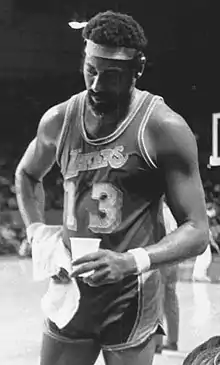
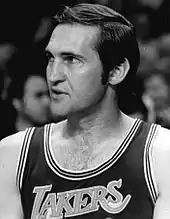
.jpg.webp)
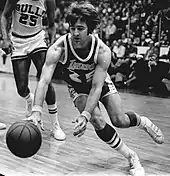
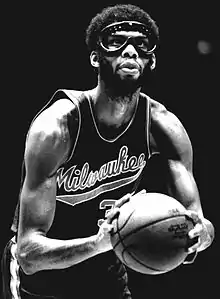
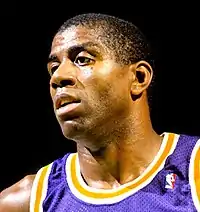

.jpg.webp)
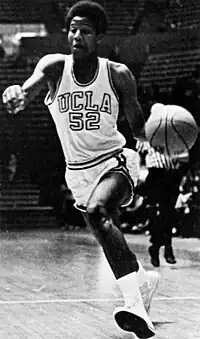
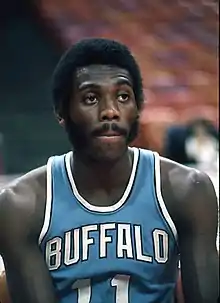


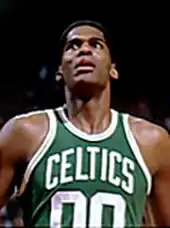
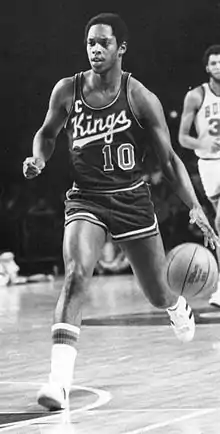
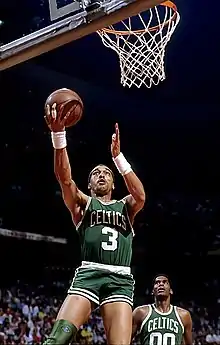
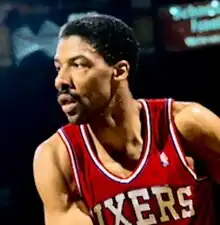
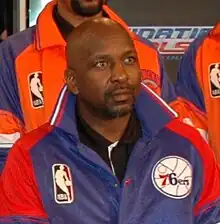
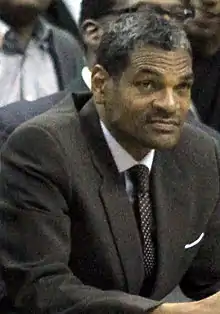
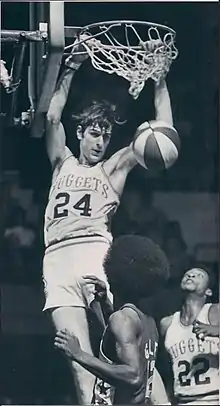
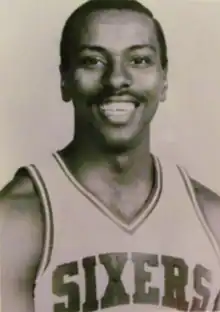




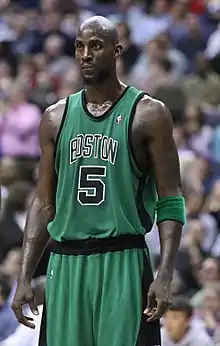
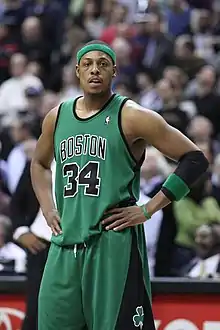

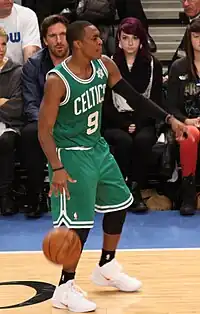

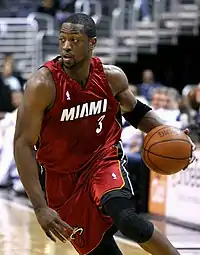
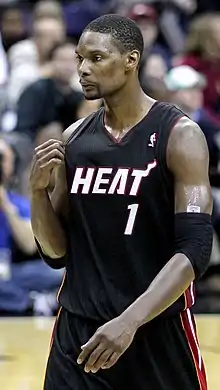
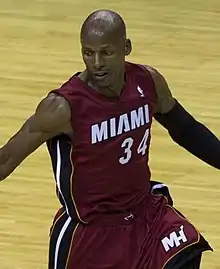
.jpg.webp)
_(cropped).jpg.webp)
.jpg.webp)
.jpg.webp)
.jpg.webp)
.jpg.webp)
.jpg.webp)
_(cropped).jpg.webp)
_(cropped).jpg.webp)
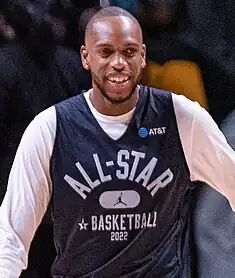
_(cropped).jpg.webp)
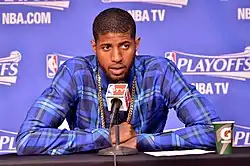
_(cropped).jpg.webp)
.png.webp)

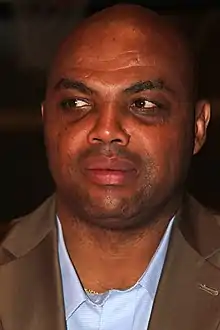
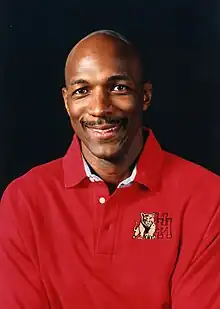

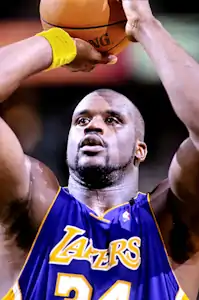
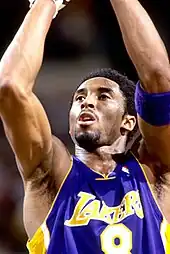
.jpg.webp)

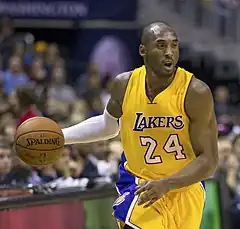
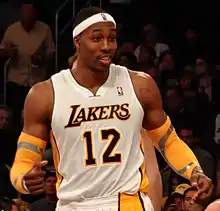
.JPG.webp)
.jpg.webp)
.jpg.webp)
.jpg.webp)
.jpg.webp)
_(cropped2).jpg.webp)
.jpg.webp)